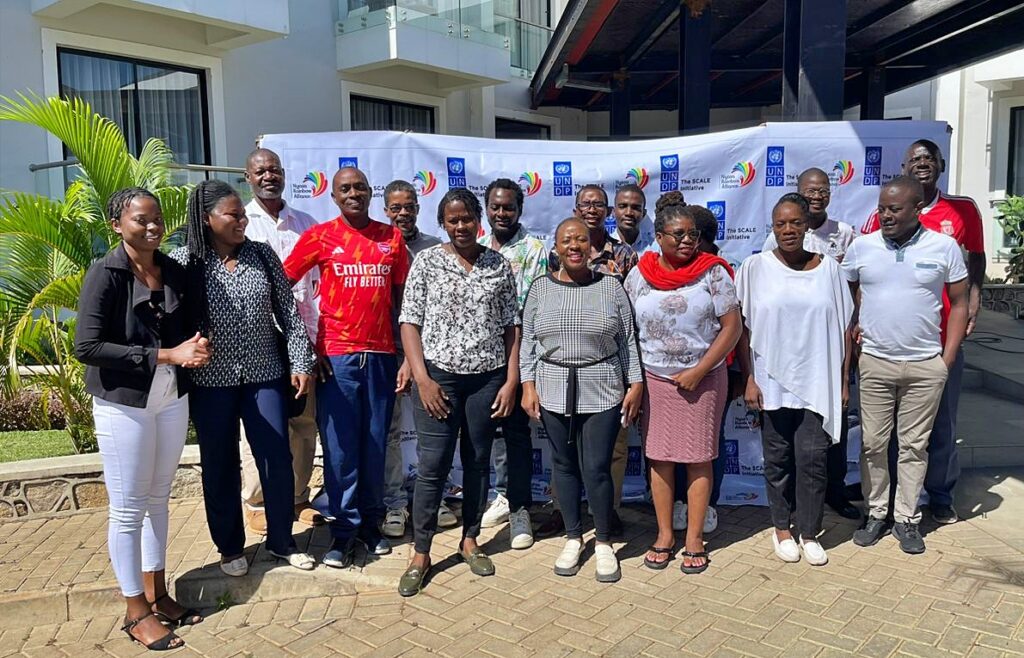Nyasa Rainbow Alliance (NRA), with support from United Nations Development Programme – UNDP, held a training session with media personnel on the 30th March, 2024 at Malawi Sun Hotel in Blantyre. This training was held to understand how the media can use their platform to raise awareness of Lesbian, Gay, Bisexual, Transgender, Queer, Intersex and Asexual (LGBTQIA+) individuals in Malawi.
There has been a growing recognition of the importance of inclusive and accurate media representation of the LGBTQIA+ community. However, despite the progress made over the years, biased or insensitive reporting on LGBTQIA+ issues still persists. This is where the crucial role of NRA specializing in LGBTQIA+ rights and advocacy comes into play, particularly in training media personnel on how to report on these sensitive topics with fairness, accuracy, and respect.
The need for specialized training in reporting on LGBTQIA+ issues stems from several challenges that journalists often face. These challenges include limited understanding of LGBTQIA+ terminology and identities, biases and prejudices that can influence reporting, fear of backlash or censorship, and lack of access to reliable sources within the LGBTQIA+ community.
NRA’s training program was aimed at addressing these challenges comprehensively through a wide range of topics, including LGBTQIA+ history and terminology, the diversity within the LGBTQIA+ community, understanding gender identity and sexual orientation, legal and human rights frameworks, ethical considerations in reporting, and best practices for interviewing LGBTQIA+ individuals.
One of the key aspects of NRA’s training was the emphasis on sensitivity and respect in language and representation. Media personnel are encouraged to use inclusive language, avoid stereotypes and sensationalism, and prioritize the voices and perspectives of LGBTQIA+ individuals in their reporting. This approach not only fosters a more accurate portrayal of LGBTQIA+ issues but also helps build trust and credibility with the community. NRA’s training session was designed to be interactive and engaging and incorporating real-life case studies.
It is hoped that media personnel who have undergone NRA’s training will feel more confident and knowledgeable in covering these topics sensitively and accurately. This will lead to a shift in narrative, with more nuanced and empathetic portrayals of LGBTQIA+ individuals and their experiences.
The success of NRA’s approach highlights the importance of collaboration between NGOs, media organizations, and the LGBTQIA+ community in advancing inclusive journalism. By providing journalists with the tools, knowledge, and support they need to report on LGBTQIA+ issues responsibly, organizations like NRA are playing a crucial role in shaping a more inclusive and equitable media landscape.
In conclusion, the training conducted by NRA to the media personnel is essential in promoting accurate, sensitive, and respectful reporting on LGBTQIA+ issues. By addressing biases and improving understanding, these initiatives contribute to a more inclusive and empathetic media representation of the LGBTQIA+ community. As we continue to strive for greater equality and acceptance, the role of such organizations in shaping media narratives cannot be overstated.

